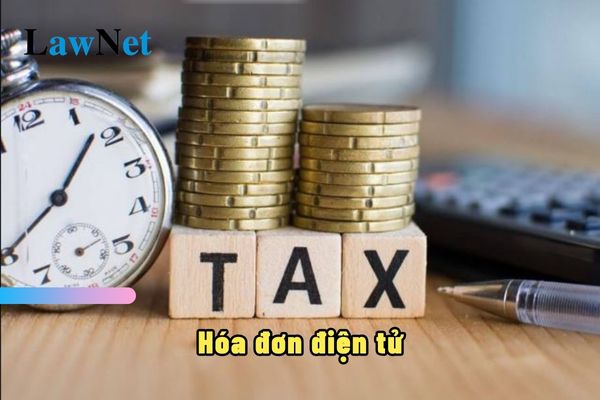Shall an e-invoice generated from a POS cash register converted into a paper invoice be used for transactions in Vietnam?
Shall an e-invoice generated from a POS cash register converted into a paper invoice be used for transactions in Vietnam?
Pursuant to Article 7 of Decree 123/2020/ND-CP, the regulations are as follows:
Conversion of e-invoices and e-documents into paper invoices and documents
1. A legal e-invoice or e-document can be converted into a paper invoice or document when there is an economic or financial requirement or at the request of the tax administration, audit, inspection, examination, investigation agencies, and in accordance with the provisions of the law on inspection, examination, and investigation.
2. The conversion of an e-invoice or e-document into a paper invoice or document must ensure the correctness of the contents between the e-invoice or e-document and the paper invoice or document after conversion.
3. e-invoices and e-documents converted into paper invoices and documents are only valid for record-keeping and tracking in accordance with the legal regulations on accounting and e-transactions and do not hold validity for transactions or payments, except for invoices generated from POS cash registers with an e-data transfer connection with the tax authority as stipulated in this Decree.
Thus, according to the regulation, an e-invoice generated from a POS cash register converted into a paper invoice is an exception and can still be used for transactions and payments.

Can an e-invoice generated from a POS cash register converted into a paper invoice still be used for transactions? (Image from the Internet)
Shall both parties publish information when authorizing the issuance of e-invoices in Vietnam?
Based on Clause 1, Article 3 of Circular 78/2021/TT-BTC, regulations on authorizing the issuance of e-invoices are as follows:
Authorization to issue e-invoices
1. Principles of authorizing invoice issuance
a) The seller of goods or provider of services who is an enterprise, economic organization, or another organization is entitled to authorize a third party with a linked relationship with the seller, eligible to use e-invoices and not in cases of discontinued use of e-invoices as specified in Article 16 of Decree 123/2020/ND-CP to issue e-invoices for sales of goods and services. The linked relationship is determined according to tax management regulations;
b) Authorization must be made in writing (contract or agreement) between the authorizing party and the authorized party;
c) Authorization must be notified to the tax authority when registering to use e-invoices;
d) e-invoices issued by the authorized organization are e-invoices with or without the tax authority's code and must show the name, address, and tax code of both the authorizing and authorized parties;
dd) Both the authorizing and authorized parties must publish information on their websites or announce openly through the mass media for buyers of goods and services to be aware of the authorization of invoice issuance. Upon expiration or early termination of the authorization agreement for invoice issuance, the authorizing and authorized parties shall cancel the postings and public announcements on their websites or via mass media regarding the invoice issuance authorization;
...
Thus, according to the above-stated regulation, when authorizing the issuance of e-invoices, both parties must post publicly on their websites or announce openly through mass media.
What are regulations on handling of issues related to authenticated e-invoices in Vietnam?
Pursuant to Article 20 of Decree 123/2020/ND-CP, the handling of issues related to authenticated e-invoices is regulated as follows:
- In the case where the seller of goods or provider of services utilizes authenticated e-invoices but encounters issues that render these invoices unusable, they should contact the tax authority or the service provider organization for support in resolving the issue.
During the resolution period of the issue, if the seller or service provider requires the use of authenticated e-invoices, they should visit the tax authority to use them.
- If the tax authority's code issuance system faces issues, the General Department of Taxation will implement technical solutions to switch to a backup system and is responsible for announcing these issues on the General Department of Taxation's e-portal.
The General Department of Taxation will select some qualified service providing organizations regarding e-invoices to authorize them to issue e-invoice codes in the event of a failure of the tax authority's system.
Should the issue with the tax authority not be resolved promptly, the tax authority provides a solution to sell invoices printed by the tax authority to several organizations or individuals for use.
After the tax authority’s code issuance system is restored, the tax authority will notify organizations and individuals to resume using authenticated e-invoices no later than 2 working days from the date specified in the tax authority's notice; organizations and individuals must submit reports on the status of using paper invoices purchased from the tax authority according to Form BC26/HDG, Appendix IA issued with this Decree.
- In cases where technical infrastructure issues occur on the part of the e-invoice service provider, the service provider organization is responsible for notifying the sellers, coordinating with the General Department of Taxation for prompt support. The service provider must promptly resolve the issue, implementing measures to assist the seller in issuing e-invoices to send to the tax authority for code issuance in the shortest time possible.
- If there are technical errors on the General Department of Taxation's e-portal preventing the receipt of e-invoice data without codes, the General Department of Taxation is responsible for announcing such cases on its e-portal. During this time, organizations, enterprises, and e-invoice service providers temporarily stop transferring data of invoices without codes to the tax authority.
Within 2 working days from the date the General Department of Taxation announces that their e-portal has resumed normal operations, organizations, and enterprises providing e-invoice services must transfer invoice data to the tax authority. The sending of e-invoice data after the announcement of technical errors of the General Department of Taxation's portal is not considered a delay in the e-invoice data submission.

